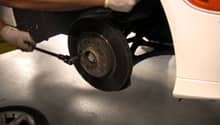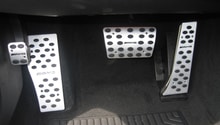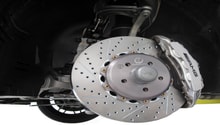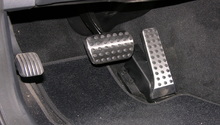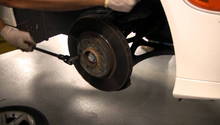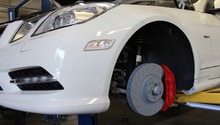Mercedes-Benz C-Class and C-Class AMG: Why Are My Brakes Screeching?
Nothing could be more hazardous than faulty brakes in the Mercedes-Benz C-Class. This guide will help you diagnose your brake system to find out the source of the screeching noise.
This article applies to Mercedes-Benz C-Class and C-Class AMG (2014-Present).
The brake system in your Mercedes-Benz C-Class is an advanced system. It's designed to be as efficient as possible, while maintaining quiet operation. Any change of brake pedal feel or noise coming out of your brakes are not to be taken lightly. It's always recommended that you don't drive your car when something is wrong with the brake system. The screeching noise can be one of a few things. This guide will walk you through the diagnostic process.

Materials Needed
- Jack and jack stands
- Tire iron
- 15mm socket and ratchet
- C-clamp
Step 1 – Visually inspect for leaks
You may have a leaking brake line.
The first thing to do is to check for any leaks. This is a good thing to do as a monthly piece of maintenance to ensure your braking system is always working properly. You can do this procedure with the car on the ground, or you can raise it to get a better view.
Loosen the lug nuts on the front wheels, raise the car with the jack, and secure it with jack stands. Remove the lug nuts and the wheels. Check all the hoses going into the brake calipers for any signs of leaks or wetness. If you discover a leak, replace the brake line.
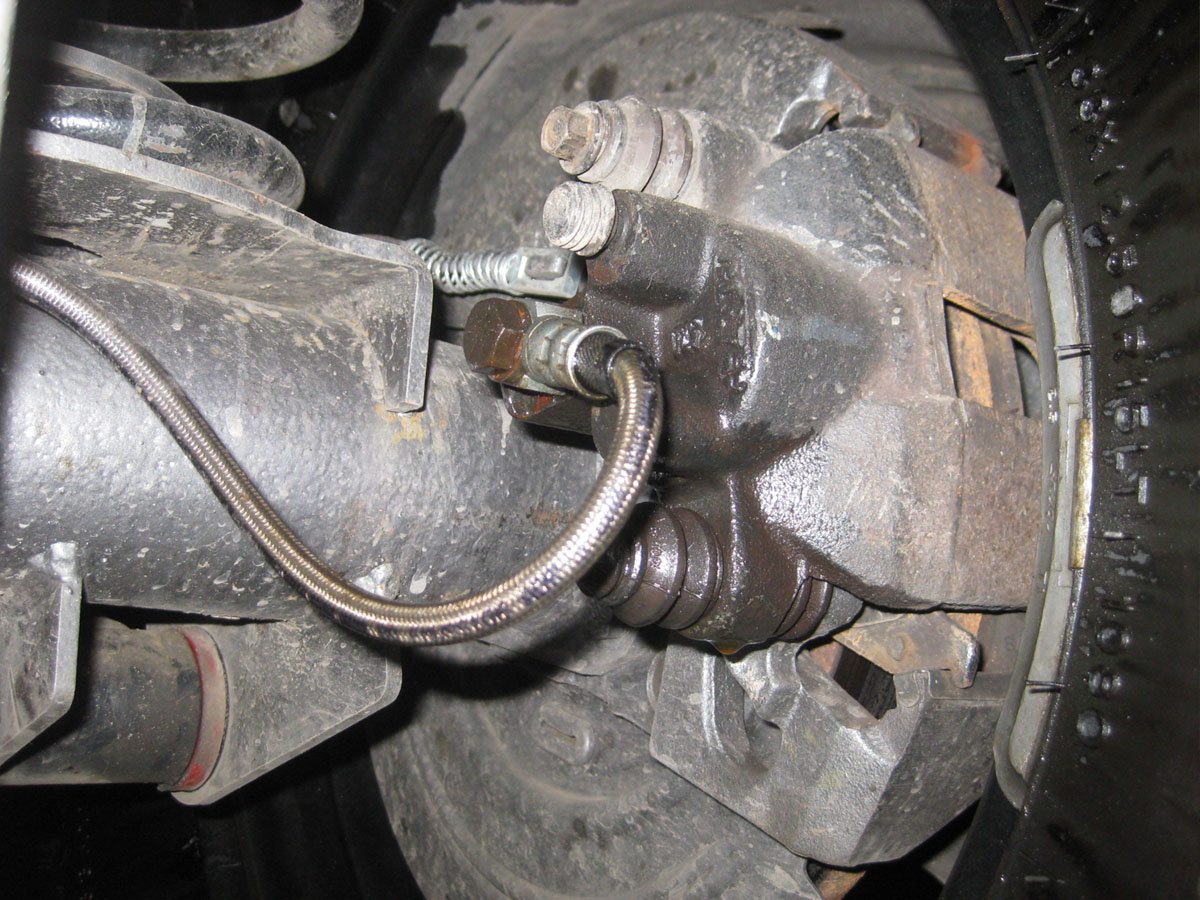
If you don't find a leak, move on to Step 2.
(Related Article: How to Jack Up Your Car - MBWorld.org)
Step 2 – Check the brake pads
Your brake pads might need to be replaced.
The brake pads will screech when it's time for them to be replaced. If they get thin enough, they will start making noise.
With the car raised up, remove the brake caliper by loosening the 15mm bolt on the back of it. Lift it up and away from the brake rotor. You can look through the caliper and see if the brake pads are too thin. If the pads are less then 1/4 inch, then they need to be replaced immediately. Some brake pads will have a wear indicator in the middle, which is a line that goes across the pad. If you can barely see it anymore, then it's time for replacement.
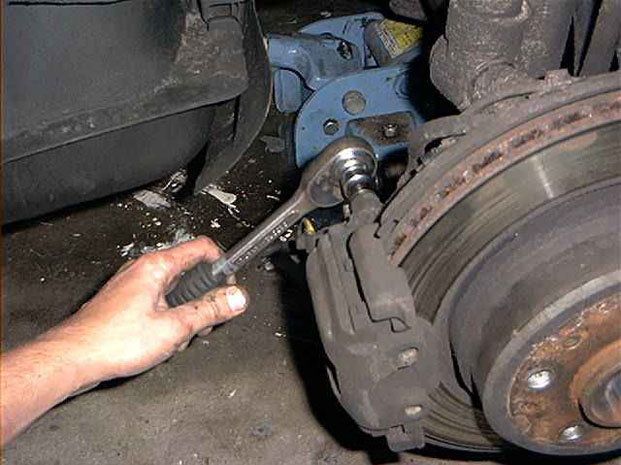
Figure 2. Loosen the bolt on the back of the brake caliper. 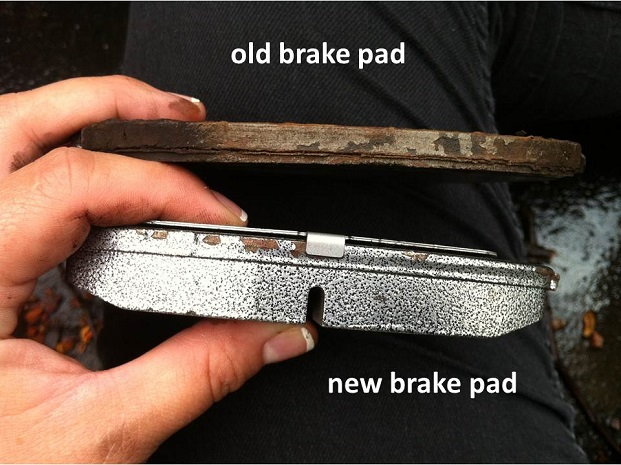
Figure 3. Check the pads' thickness.
If the brake pads are not too thin, proceed to Step 3.
Step 3 – Check the brake rotor
Your brake rotor may be worn.
The brake rotors can last for a very long time, but only if the brake pads were always replaced on time. Check the rotors for any cracks, grooves, or rust. If you find any unusual texture to it, it is time for a new rotor. Also, note that the rotors' minimum thickness is one inch. So if it's thinner than an inch, go ahead and replace it.
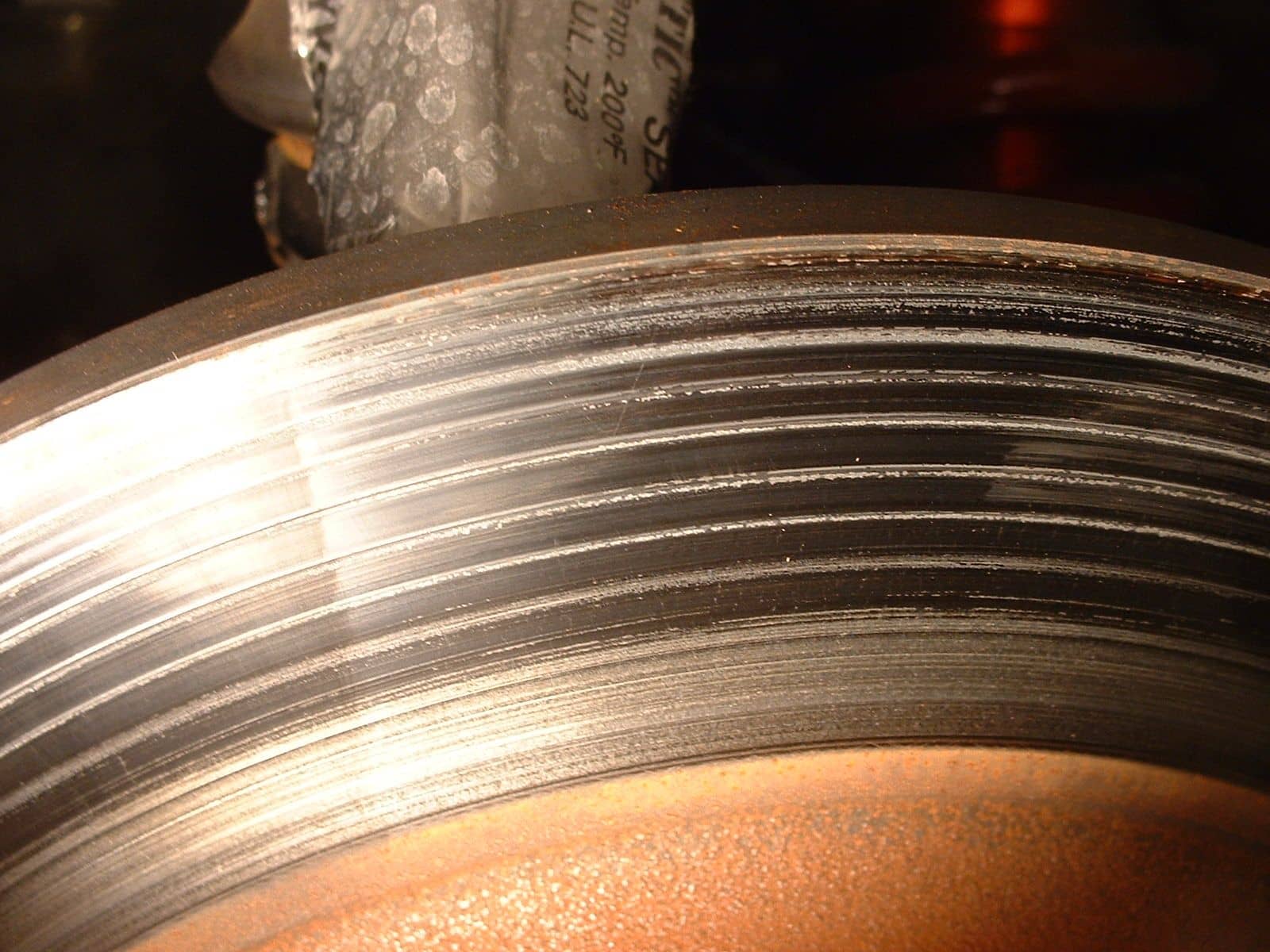
If you've done everything on this list and you still experience screeching, it's time to consult a professional. Take your Mercedes in to your local dealer or auto shop for further inspection.
Always check your brake fluid, pay attention to brake pedal feel, and take action when something doesn't seem right with your brake system.
There are many different brake pads that serve different purposes. Whether you're looking for noise-free, dust-free, or top of the line pads, there is always something for you.
(Related Article: Brake Pad Reviews - MBWorld.org)
Related Discussions
- Screeching brakes - MBWorld.org
- Brake noise - MBWorld.org

